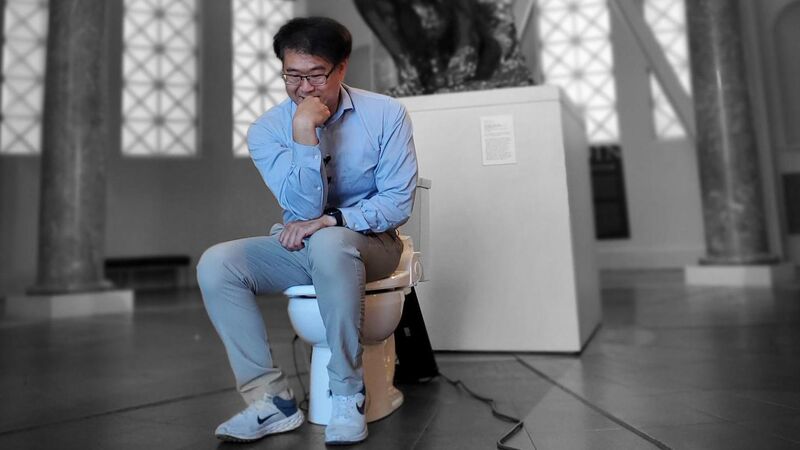Necrobiotic spiders, a smart loo, and a repetitive words study — all win 2023 Ig Nobel prizes

Ig Nobel health prize winner Seung-min Park and the Stanford toilet. The 'smart' toilet that can identify a person from their 'analprint' has won one of this year’s spoof Ig Nobel prizes. Picture: Ig Nobel/Seung-min Park/Stanford University/PA Wire
If you've ever wondered if people have the same number of hairs in both nostrils or if you've been thinking your toilet could be doing a lot more for you then this is a very good day for you.
The Ig Nobel prizes have saluted researchers who have taken on these and other pressing issues of our time.










